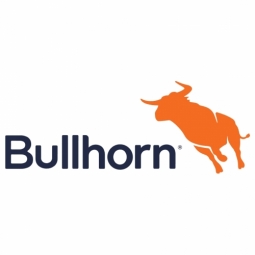Technology Category
- Analytics & Modeling - Real Time Analytics
- Sensors - Level Sensors
Use Cases
- Supply Chain Visibility
- Time Sensitive Networking
Services
- System Integration
About The Customer
Procom is a leading staffing firm, founded in 1978, with 14 offices across North America. At any given time, Procom has over 8,500 skilled professionals on assignment. The company has received numerous prestigious recognitions, including being named one of Deloitte’s Best Managed Companies for eight consecutive years. Prior to 2010, Procom was using a home-grown system for their applicant tracking needs. However, the system had become unreliable and too expensive to maintain, leading Procom to search for a new software solution.
The Challenge
Procom, a leader in the staffing industry with 14 offices throughout North America, was facing challenges with its legacy, home-grown applicant tracking system. The system had become too expensive to maintain and lacked essential features such as email tracking and real-time reporting capabilities. The IT resources were spread thin and the system had become unreliable. The company was at a crossroads, deciding whether to invest time and money in overhauling their existing system or to find a new software solution from a trusted company. The new software needed to be affordable, able to go live quickly with minimal in-house configuration, provide email tracking and visibility, and offer the ability to run valuable, real-time reports.
The Solution
Procom decided to implement Bullhorn, a software solution that met all their needs perfectly. Bullhorn was already familiar to Wendy Kennah, Director of Recruiting at Procom, as she had begun an implementation of it at a previous company. Bullhorn provided an affordable system that could go live quickly, offered email tracking and visibility, and had flexible, customizable real-time reporting capabilities. In the six years since implementing Bullhorn, Procom has grown from a $300M business to a $1B+ business. As Procom's needs have changed with its growth, Bullhorn has also evolved to meet new demands. The use of Bullhorn's CRM, ATS, VMS Access, and other integrations has made a substantial difference to Procom's business.
Operational Impact
Quantitative Benefit

Case Study missing?
Start adding your own!
Register with your work email and create a new case study profile for your business.
Related Case Studies.

Case Study
Remote Temperature Monitoring of Perishable Goods Saves Money
RMONI was facing temperature monitoring challenges in a cold chain business. A cold chain must be established and maintained to ensure goods have been properly refrigerated during every step of the process, making temperature monitoring a critical business function. Manual registration practice can be very costly, labor intensive and prone to mistakes.

Case Study
Retail Uses RFID to Enable Cold Chain Monitoring
Like most grocery retailers, Hy-Vee is faced with the challenge of providing the highest quality products to its shoppers. Shoppers want the longest possible shelf life from perishable products and expect a consistent product experience each time they shop. Controlling the quality of products sold leads to shopper loyalty, which is of paramount importance to the success of Hy-Vee. Before products arrive in stores, Hy-Vee's distribution centers (DCs) handle items including dairy products, fresh meats, seafood, deli items, produce and frozen goods, all of which have different temperature needs and sensitivities. During transit from suppliers to DCs, Hy-Vee has limited visibility and temperature management abilities due to large amount of supplier managed transportation. For instance, during a week-long transit, a supplier's carrier equipment may malfunction, causing an item to thaw and then refreeze once repairs are made. Hy-Vee sought help from TempTRIP, an RFID solution provider that focuses on shipping, storage, receiving, and temperature control. TempTRIP's EPC RFID tags use Impinj chips to monitor and report temperature readings throughout the shipping and receiving process. The tags can also be re-configured and re-used, a unique feature within the current market of temperature monitoring devices.

Case Study
Covisint Improves Mitsubishi's Collaboration With Its Supply Chain
Mitsubishi sought to improve supplier relationships on a global basis and to offer an easy-to-use solution to interact with them. In August 2004, Mitsubishi selected Covisint’s platform to help improve sharing of information and collaborative business processes with its global suppliers. Covisint enabled Mitsubishi to provide its suppliers with immediate access to information and applications to obtain more collaborative working relationships










